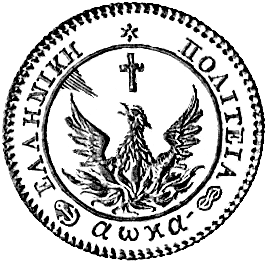One of the European Union’s overarching objectives is the “sustainable development of Europe based on balanced economic growth and price stability” (Article 3, Treaty on EU). Today’s first estimate of GDP for Q4 2014 underline just how far away the Eurozone and EU are from “balanced economic growth”.
Overall, according to Eurostat the Eurozone’s GDP was 0.3% greater in Q4 than Q3, but Q4 was just a miserly 0.9% greater than Q4 2013. Of the larger countries, Germany and Spain saw Q on Q increases of 0.7%, compared to France at +0.1% and Italy on zero.
But the shock was Greece’s negative performance of -0.2% compared to Q3. (And this before Syriza’s election win). True, Q4 real GDP in Greece was 1.7% greater than Q4 2013, which may indicate that the very bottom has been reached. But overall, Greece remained in 2014 in a deeper economic mire than is generally recognized. And having suffered a far greater economic cataclysm over the last 5 and 10 years than any other European state.
The Hellenic Statistical Office today gave its own more detailed figures for Greek GDP by quarter, from Q1 2005 to Q4 2014 (1st estimate), in both real terms and in current prices (nominal GDP).
These show that real GDP (i.e. after inflation is taken into account) rose in 2014 as a whole by just 0.8% – this is the meagre (but first marginally positive) result of 5 long years of austerity and over 4 years of Troika-embedded programmes.
Yet when we look at nominal GDP, because Greece has been in such sharp deflation for so long, we find that nominal GDP in 2014 fell by a substantial 1.9% on the 2013 level. Yes, nominal GDP in Greece was still falling in each quarter of 2014 (in Q4 by -0.2%).
Q4 real GDP still remained 25.5% below the peak Q4 of 2007, and 26.2% below peak GDP in Q2 2007.
In nominal terms, Q4 GDP was 26.1% below the peak Q4 of 2009, and 27% below peak GDP in Q3 2008.
Of course, Greece had lived through a period of bubble economy, but going back to the stat of the series in 2005, we find that in Q4 2014, real GDP was still 19.4% below Q4 2005, while nominal GDP was 12.4% below Q4 2005.
That means that compared to 9 years ago, the current Greek economy almost one-fifth smaller today in real terms, and one-eighth smaller in nominal terms.
By comparison, Italy’s real GDP is some 5% lower today than in 2005, and Portugal’s by some 3%, whilst Spain’s real GDP is up from 2005 by around 2%, and Ireland’s by some 3%. Unlike in Greece, nominal GDP has grown in each of these three countries since 2005.
All of this may help to explain why we and so many others argue that Greece has very special needs, and why the existing Troika programme has failed – and must be replaced by a new programme based on rapid increase in economic activity and reduction in unemployment.
True, unemployment has come down from a Himalayan peak of almost 28% to 25.8% in November 2014. But while unemployment has fallen by around 100,000 over the last year, this is not matched by an increase in those in employment – that number has increased in a year by a paltry 50,000. Indeed, there were fewer in employment in Greece in November 2014 than in the same month 0f 2012.
As Tony Blair put it this week in his FT op-ed article:
“The rest of Europe has imposed a burden on Greece that could never be borne for any length of time. I do not know what would happen in the UK if our economy contracted by 25 per cent; but I suspect it would be revolutionary.”






